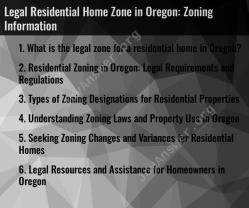What is the Code of ethics for real estate agents?
The Code of Ethics for real estate agents is a set of principles and standards that guide the professional conduct of real estate professionals. While many licensed real estate agents and brokers may follow these principles, the official Code of Ethics is specifically a binding document for members of the National Association of REALTORS® (NAR).
The NAR Code of Ethics is based on three main categories of duties:
Duties to Clients and Customers: This section emphasizes the agent's primary obligation to protect and promote their client's interests. It includes principles such as:
Being honest with all parties in a transaction.
Avoiding exaggeration, misrepresentation, or concealment of pertinent facts about a property.
Cooperating with other brokers when it is in the client's best interest.
Disclosing any personal interest the agent has in a property.
Keeping client funds separate from the agent's personal or business funds.
Ensuring all transactional details are in writing.
Duties to the Public: This section focuses on the agent's responsibility to the wider public. Key principles include:
Prohibiting discrimination based on factors such as race, color, religion, sex, disability, familial status, national origin, sexual orientation, or gender identity.
Ensuring all advertising and public representations present a true and accurate picture.
Only providing services within the scope of their professional competence.
Complying with all relevant laws and regulations.
Duties to REALTORS®: This section outlines the professional obligations that members of the NAR have to each other. These principles are intended to foster a cooperative and respectful environment within the industry. They include:
Avoiding false or misleading statements about other real estate professionals.
Respecting exclusive listing agreements that other REALTORS® have with their clients.
Resolving contractual disputes through mediation or arbitration.
REALTORS® are required to complete regular ethics training to maintain their membership. Violations of the Code can result in disciplinary action, including fines, suspension, or required education courses.
What are the core articles of the Code of Ethics for real estate agents?
The Code of Ethics for real estate agents, established by the National Association of Realtors (NAR), serves as the foundation for professional conduct in the real estate industry. Its core articles emphasize honesty, integrity, and fairness in all dealings. The primary principles include:
Honesty and Fair Dealing: Realtors must provide truthful information and avoid misrepresentation in all transactions.
Loyalty to Clients: Realtors are obligated to prioritize their clients’ interests while adhering to legal and ethical standards.
Disclosure: Full disclosure of material facts that may affect a transaction is mandatory.
Confidentiality: Sensitive client information must be protected unless legally required to disclose.
Professional Competence: Realtors should continually update their knowledge and skills to serve clients effectively.
These core articles collectively ensure that real estate professionals maintain high standards, fostering trust and credibility in the marketplace.
What are a real estate agent's duties to clients and customers?
Realtors have distinct duties to clients (those with whom they have a formal agency agreement) and customers (prospective buyers or sellers without such an agreement).
Duties to Clients:
Fiduciary Responsibility: Act in the best interest of the client, including loyalty, confidentiality, and full disclosure.
Skill and Care: Use professional expertise to guide clients through complex transactions.
Obedience and Accounting: Follow lawful instructions and properly manage client funds.
Duties to Customers:
Honesty and Fairness: Provide accurate information and avoid misleading statements.
Disclosure of Material Facts: Inform customers about conditions affecting the property.
Respect and Courtesy: Treat all parties professionally, ensuring equitable treatment.
By clearly defining these duties, the Code of Ethics establishes boundaries and expectations, protecting both clients and customers.
How does the Code of Ethics address a realtor's duty to the public?
The Code of Ethics underscores a realtor’s responsibility to serve the public interest by promoting transparency, fairness, and trustworthiness. Key aspects include:
Truthful Advertising: Realtors must avoid deceptive marketing and provide factual property descriptions.
Avoiding Discrimination: Realtors are prohibited from engaging in practices that violate fair housing laws.
Community Responsibility: Realtors should contribute positively to their communities and uphold the profession’s reputation.
These standards ensure that the public can rely on real estate professionals to act ethically, not just for private clients, but for the community at large.
What are the ethical obligations of realtors to other real estate professionals?
Realtors are expected to maintain professional respect and cooperation with colleagues. This includes:
Respecting Agency Relationships: Avoid interfering with other agents’ contracts or client relationships.
Truthfulness in Communications: Provide accurate information to fellow professionals regarding listings, offers, and property conditions.
Cooperation: Work collaboratively, especially in transactions involving multiple brokers, to ensure smooth and ethical deals.
By fostering collegiality and trust, these obligations reduce conflicts and uphold the integrity of the real estate industry.
How often are realtors required to take ethics training?
Realtors must complete ethics training every three years as part of their continuing education requirements mandated by the National Association of Realtors. This training covers updates to the Code of Ethics, practical scenarios, and best practices in professional conduct. Regular training ensures that real estate professionals remain current with evolving ethical standards and maintain a high level of competence and integrity in their practice.












